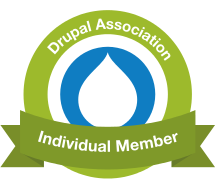Cornwall Web Design - Surfing Up!
Superfast Broadband, sunny living conditions and a cauldron of creatives are making Cornwall a hot place for web-based business and design in the UK. Every year masses of visitors are tapping around the coastline with smartphones and tablets, and using apps and ebooks to explore locations and features that used to be just unguided guesswork. This Digital Peninsula is evolving fast, but not everyone is keeping up and putting themselves on the map.
Cornwall is actually the birthplace of the steam engine and many mining techniques, but until recently has been at the leading edge mainly in the surfing, holiday and fine art industries. Cornwall's telecommunications history includes early radio transmission experiments by Marconi as well as the first transatlantic telegraph cables connecting up the Victorian equivalent of the internet. Cornish technology also travelled the world with a wide diaspora of miners who took their techniques and expertise from the local tin mines to the four corners of the earth and below.
Superfast broadband specially funded by the EU to assist Cornwall is now arriving far ahead of the rest of the UK, bringing attractively high internet speeds and opportunities. In the last two decades numerous new international fibre-optic cables have come ashore here, though the Cable and Wireless training college which once trained telegraph operators has now been converted to a highly rated museum. Adding to the to the twenty-first century creative mix we now have a first 3d printing lab and a first hackspace as well as an innovative pilot of a timeshareable office rental scheme, and every year the Cornwall Design Fair takes place in Penzance.
Fine artists and craft workers are a long-established and valuable presence in St Ives, St Just, Penzance and Newlyn as well as at Falmouth College of Arts, now Falmouth University. Cornwall today has a wealth of artists and a very active gallery industry including the popular Tate Gallery in St Ives, and museums in Falmouth, Truro, Helston, Penwith and many heritage sites. Many of these cottage and craft industries have unique and desirable offerings which could reach a wider audience, and all face the challenge of making themselves findable by the digital public.
